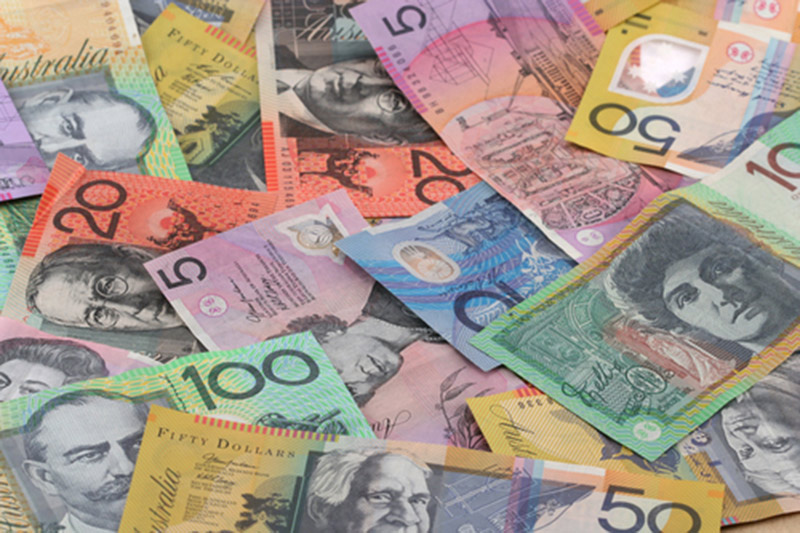Investing.com - THe Australian dollar eased after the release of Reserve Bank of Australia board meeting minutes for April on Tuesday that signalled appropriate monetary policy settings for current economic conditions and a slightly upgraded view of the jobs market.
"Falling mining investment and weak public demand were set to constrain growth for some time (but) there were early promising signs in other parts of the economy," the RBA said in the minutes, adding later that "a range of labor demand suggested a modest improvement in prospects for employment."
The RBA cash rate stands at a record low 2.5% and has stated in recent months the level could stay there for a "period" while at the same time noting the Australian dollar has appreciated "partly in response to domestic economic data."
Separately, RBA ssistant Governor Guy Debelle said bond yields are likely to remain low for some time as monetary policy settings by global central banks take time to normalize and strong demand is seen for the country's highly-rated debt.
AUD/USD traded at 0.9396, down 0.28%, after the events.
Overnight, the dollar firmed against most major currencies after data revealed U.S. retail sales shot up in March, though concerns the crisis in Ukraine could escalate watered down the greenback's advance somewhat.
Also on Tuesday, USD/JPY traded at 101.87, up 0.01%, while EUR/USD held at 1.3816, down 0.04%.
The Commerce Department reported that U.S. retail sales rose 1.1% in March, exceeding expectations for a 0.8% gain. Retail sales in February were revised up to a 0.7% increase from a previously estimated 0.3% rise.
Core retail sales, which exclude automobiles, rose 0.7% last month, beating expectations for a 0.5% reading, after a 0.3% gain in February
Consumer demand drives the bulk of U.S. economic output, and the numbers fueled expectations that the Federal Reserve will continue to wind down its monthly asset-purchasing program as the year unfolds.
Fed asset purchases, currently standing at $55 billion a month, weaken the greenback by suppressing borrowing costs to spur recovery, though talk of waning monetary intervention often strengthens the U.S. currency.
Elsewhere in the U.S., data revealed U.S. business inventories rose less than expected in February.
In a report, Census Bureau reported earlier that U.S. business inventories rose 0.4% in February from 0.4% in the preceding month.
Analysts were expecting a 0.5% reading in February.
Meanwhile across the Atlantic, the euro slid after ECB President Mario Draghi said Saturday that further gains in the euro would trigger additional monetary easing to keep consumer prices in comfort zones.
"A strengthening of the exchange rate requires further monetary stimulus. That is an important dimension for our price stability," he said.
ECB governing council member and Bank of France governor Christian Noyer said Monday that a weaker euro is desirable, adding that the stronger the currency is the more "accommodating" monetary policy needs to be.
Geopolitical concerns capped the dollar's advance and fueled demand for safe-haven gold positions.
Tensions between Russia and Ukraine mounted after a deadline set by Ukraine for pro-Russian separatists to exit government buildings they are occupying in the eastern reaches of the country expired on Monday.
The U.S. has indicated that it is prepared to impose more sanctions against Moscow if Russian encroachments in eastern Ukraine continue.
The US Dollar Index, which tracks the performance of the greenback versus a basket of six other major currencies, traded up 0.03% at 79.85.
In the U.S. on Tuesday, Fed Chair Janet Yellen is to speak; her comments will be closely watched.
